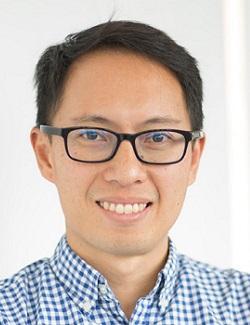
Research Topics
Our research goal is to understand the heterogeneity of type-2 immune responses during helminth infections. Although we have co-evolved with helminths and most infections are asymptomatic, these parasites can cause pathology in some individuals that either mount a response that is too strong or too weak during infection. An appropriately regulated type-2 response is critical in maintaining the balance between expelling enough parasites and tolerating the remaining parasites without excessive collateral tissue damage, in order to maintain the fitness of the host.
Type-2 immunity induced by helminth infections may be therapeutically beneficial for improving symptoms of inflammatory bowel diseases and metabolic syndrome, but this may also benefit only specific subsets of individuals. The mechanisms underlying the heterogeneity of type-2 responses between individuals still remains poorly understood. We believe that characterizing these mechanisms will enable us to develop strategies to utilize helminth infections as treatment for specific inflammatory conditions (e.g., autoimmune diseases and metabolic conditions) for the right individuals, as well as designing better approaches toward limiting pathology that is caused by helminth infections.
Our basic immunological studies on macrophage biology and our translational research studies on the microbiota are converging toward the goal of understanding factors that regulate variation of type-2 immune responses in humans. Using a combination of mouse models, as well as field and clinical studies, our future plans are to test some of the concepts that we have developed on chromatin remodeling in macrophage responses to type-2 cytokines, as well as helminth-microbiota interactions, in mouse models, field studies and also human challenge infections.
Biography
Dr. P'ng Loke completed his Ph.D. research at the University of Edinburgh on IL-4 activated macrophages responding to Brugia malayi filarial parasites in 2001. He then did postdoctoral research on costimulatory molecules at University of California-Berkeley and studied macrophage responses to different parasites at University of California-San Francisco. In 2009, he joined New York University School of Medicine as an assistant professor and was a tenured associate professor before he joined the Laboratory of Parasitic Diseases as a senior investigator in 2020.
Selected Publications
- Oyesola O, Downie AE, Howard N, Barre RS, Kiwanuka K, Zaldana K, Chen YH, Menezes A, Lee SC, Devlin J, Mondragón-Palomino O, Souza COS, Herrmann C, Koralov SB, Cadwell K, Graham AL, Loke P. Genetic and environmental interactions contribute to immune variation in rewilded mice. Nat Immunol. 2024;25(7):1270-1282.
- Oyesola OO, Hilligan KL, Namasivayam S, Howard N, Clancy CS, Zhao M, Oland SD, Kiwanuka KN, Garza NL, Lafont BAP, Johnson RF, Mayer-Barber KD, Sher A, Loke P. Exposure to lung-migrating helminth protects against murine SARS-CoV-2 infection through macrophage-dependent T cell activation. Sci Immunol. 2023;8(86):eadf8161.
- Zhao M, Jankovic D, Link VM, Souza COS, Hornick KM, Oyesola O, Belkaid Y, Lack J, Loke P. Genetic variation in IL-4 activated tissue resident macrophages determines strain-specific synergistic responses to LPS epigenetically. Nat Commun. 2025;16(1):1030.
- Loke P, Harris NL. Networking between helminths, microbes, and mammals. Cell Host Microbe. 2023;31(4):464-471.
Related Scientific Focus Areas


Microbiology and Infectious Diseases
View additional Principal Investigators in Microbiology and Infectious Diseases



This page was last updated on Friday, August 15, 2025